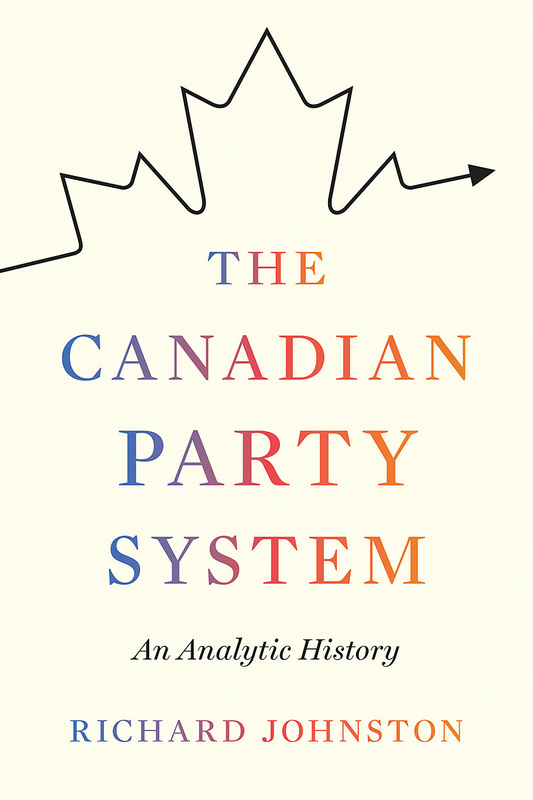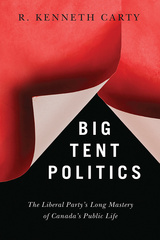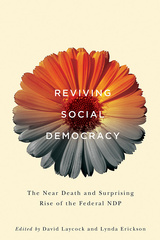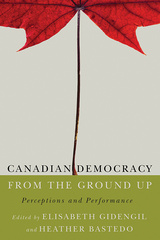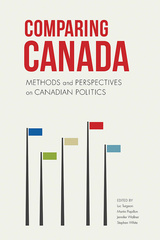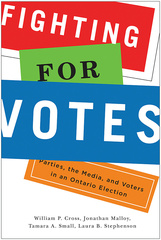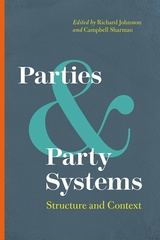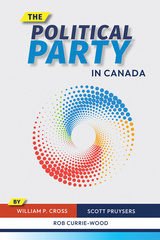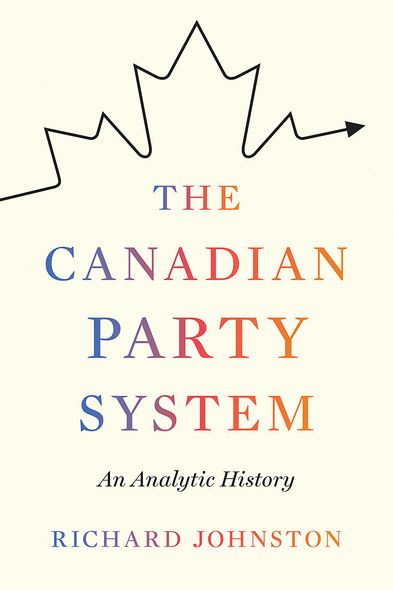
The Canadian party system is a deviant case among the Anglo-American democracies. It has too many parties, it is susceptible to staggering swings from election to election, and its provincial and federal branches often seem unrelated. Unruly and inscrutable, it is a system that defies logic and classification – until now.
In this political science tour de force, Richard Johnston makes sense of the Canadian party system. With a keen eye for history and deft use of recently developed analytic tools, he articulates a series of propositions underpinning the system. Chief among them was domination by the centrist Liberals, stemming from their grip on Quebec, which blocked both the Conservatives and the NDP. As Johnston shows, the Conservative Party could win only with short-lived coalitions of francophobes and nationalist francophones, often built by soaking up populist tension. Moving beyond the national realm, he also takes a close look at the stunning discontinuity between federal and provincial arenas, another peculiarity of the Canadian system.
For its combination of historical breadth and data-intensive rigour, The Canadian Party System is a rare achievement. Its findings shed light on the main puzzles of the Canadian case, while contesting the received wisdom of the comparative study of parties, elections, and electoral systems elsewhere.
This book is for scholars, researchers, and students in Canadian party politics and comparative politics.
Awards
- 2019, Winner - Seymour Martin Lipset Best Book Award, American Political Science Association
- 2018, Shortlisted - Donald Smiley Prize, Canadian Political Science Association
By tackling the big claims regarding parties, elections, and electoral systems in Canada, and by placing his analysis in a comparative framework, Johnston has done the discipline a huge service[…]Simply put, The Canadian Party System is foundational reading.
Johnston has written a book that will be required reading for students of Canadian politics for decades to come. In identifying and explaining the role of the Liberal and Conservative parties and their relationship to Québec, while also highlighting the importance of what he calls ‘insurgent’ third parties, Johnston provides a valuable explanatory framework for the unique nature of Canada’s party system.
Canadian elections mystify political scientists. Like the bumblebee, the party system shouldn’t look like that and yet be airborne. This book, by an internationally renowned Canadian scholar at the height of his powers, goes far toward unraveling the mystery. It is beautifully written and will be an instant classic.
Richard Johnston has produced a magisterial analysis of the Canadian party system. Cleverly combining quantitative data with a subtle understanding of Canadian history and geography, he addresses all the big questions that have mystified Canadian scholars over the years about the role of the electoral system, federalism, class, and religion in Canadian elections. Johnston offers a rich, deep, and thought-provoking account that will force you to revisit how you view Canada, politics, voters, and elections. A brilliant tour de force.
No one understands the deep historical origins of Canadian politics as well as Richard Johnston. Nor could anyone else write a book that so exhaustively identifies and explains empirical regularities and patterns in our party politics. It is not an exaggeration to say that Canadian political science has been waiting for this book for a very long time. It is a masterpiece.
1 Introduction
2 Situating the Case
3 Liberal Dominance, Conservative Interludes
4 Liberal Centrism, Polarized Pluralism
5 Catholics and Others
6 The Life and Death of Insurgents
7 Invasion from the Left
8 System Dynamics, Coordination, and Fragmentation
9 Federal-Provincial Discontinuity
10 Conclusion
Appendix: Data Sources
Notes; References; Index
